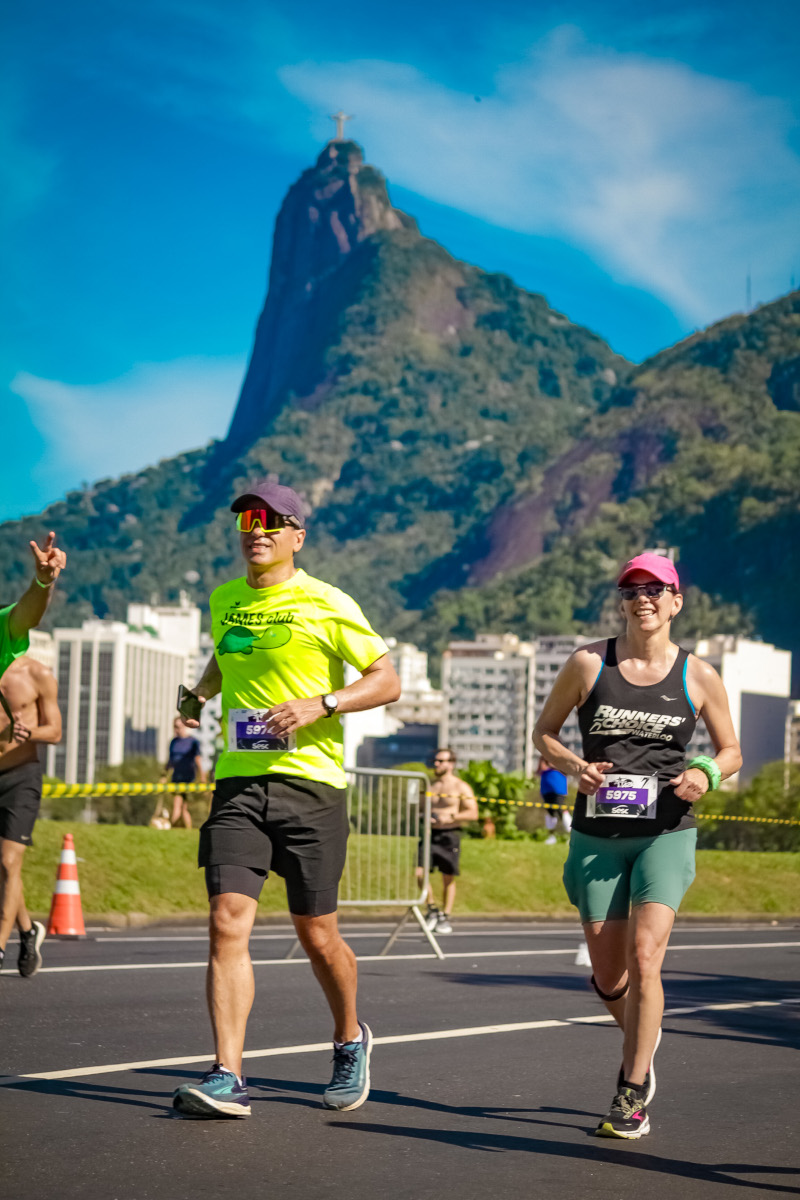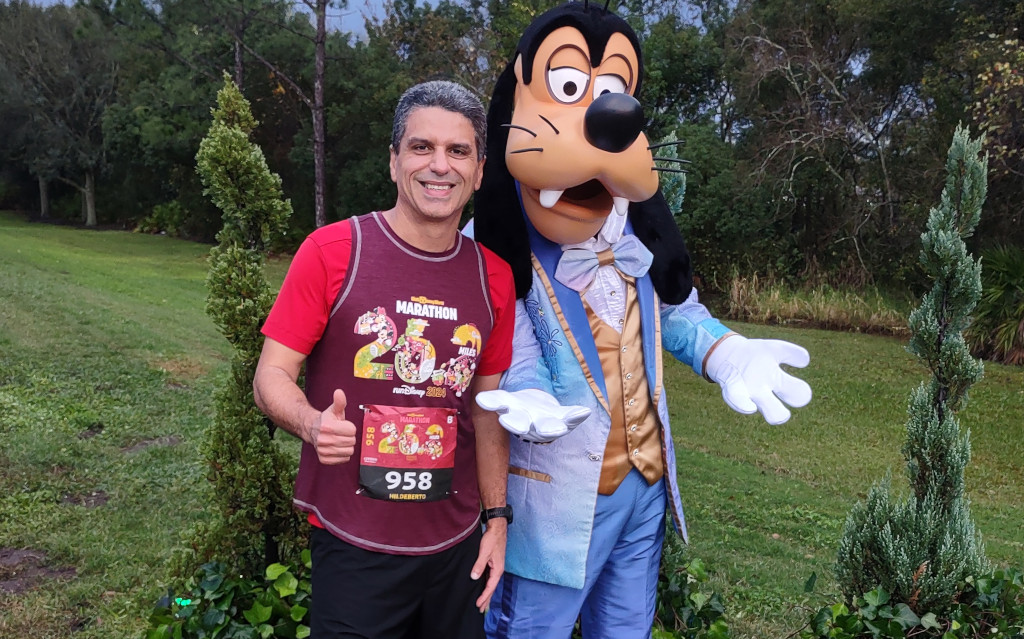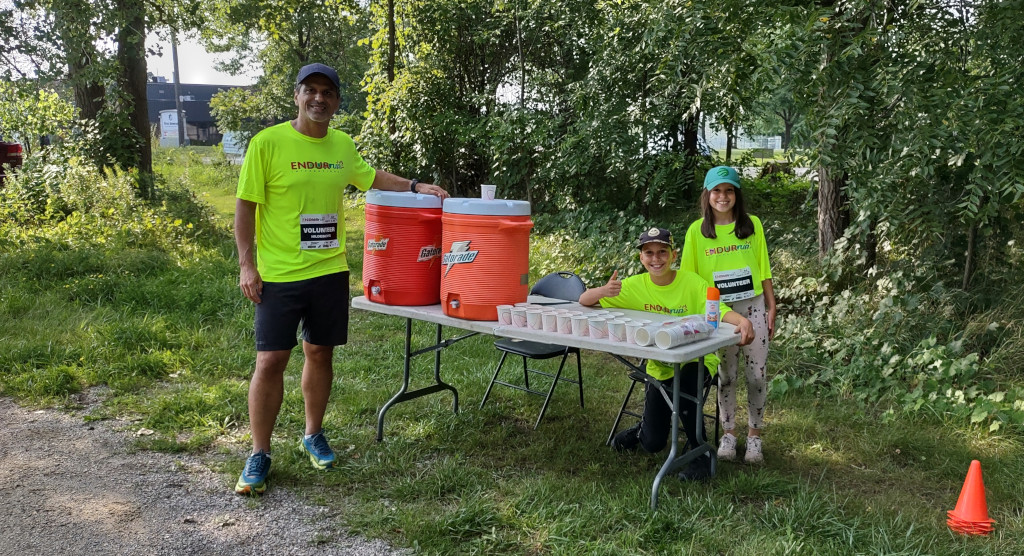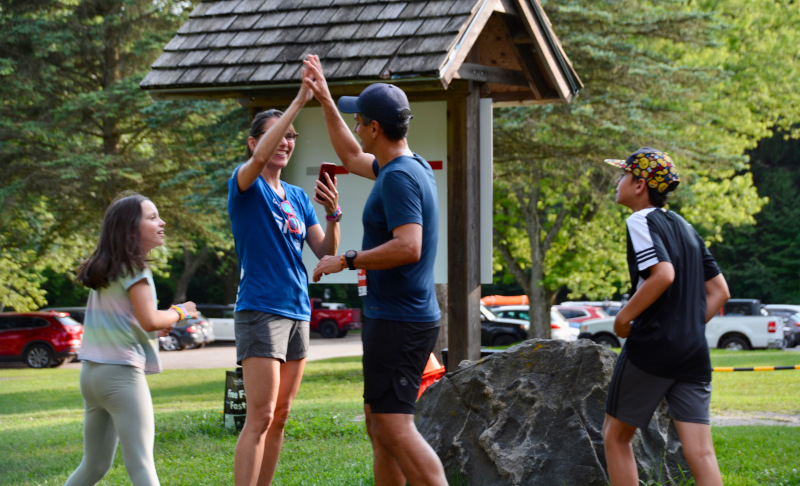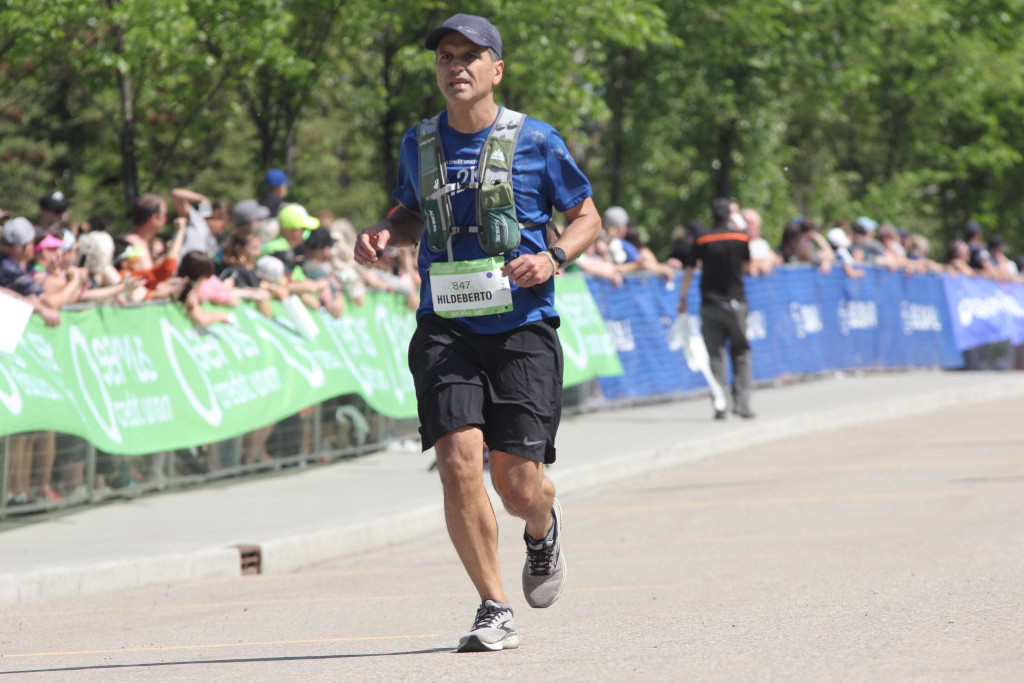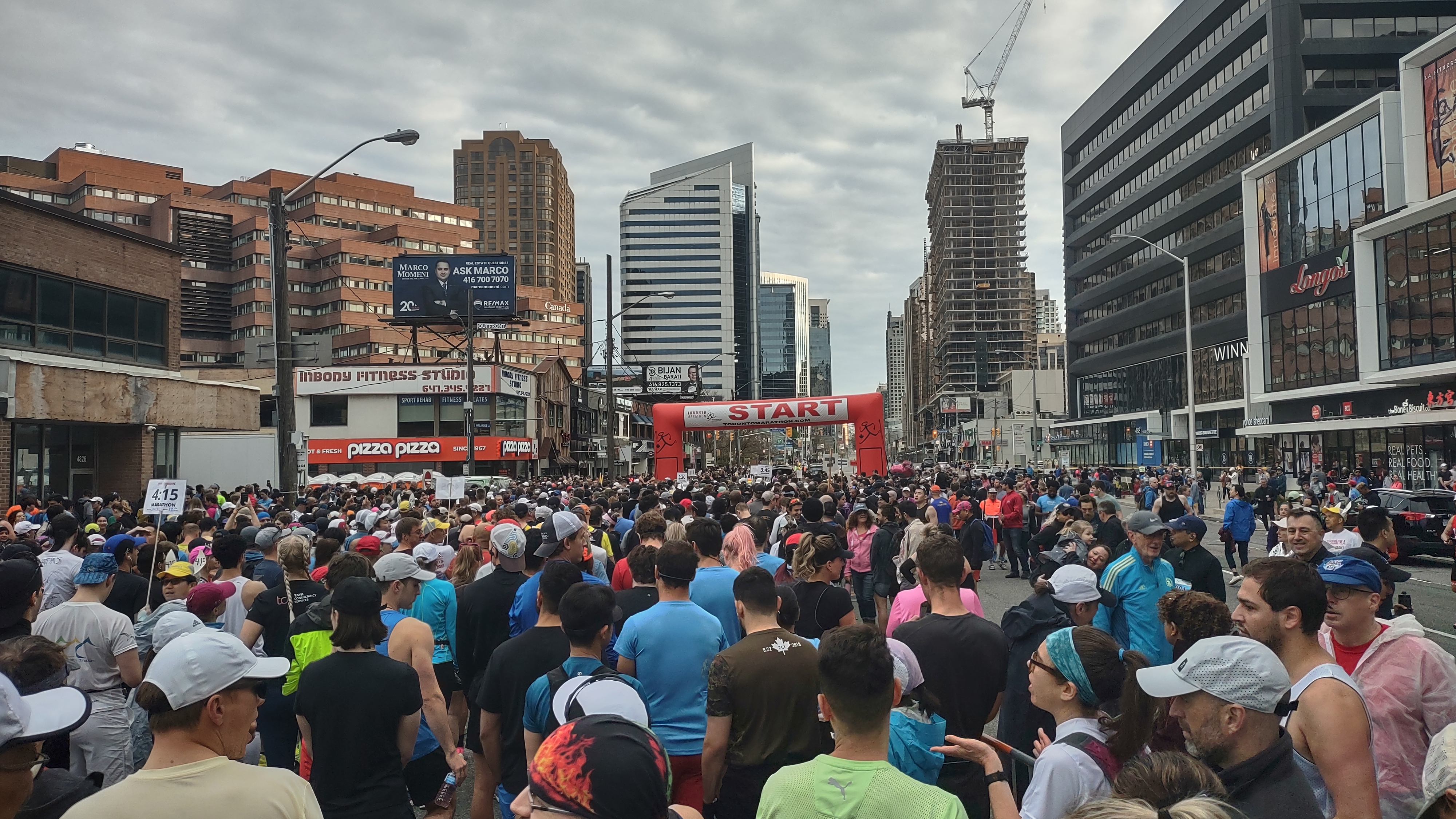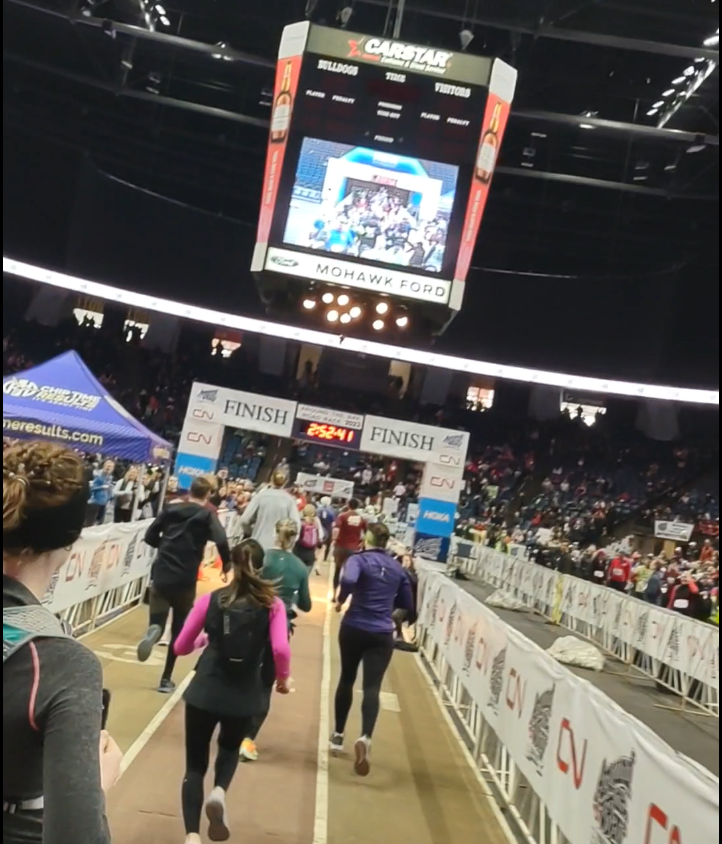Toronto Waterfront Marathon 2022
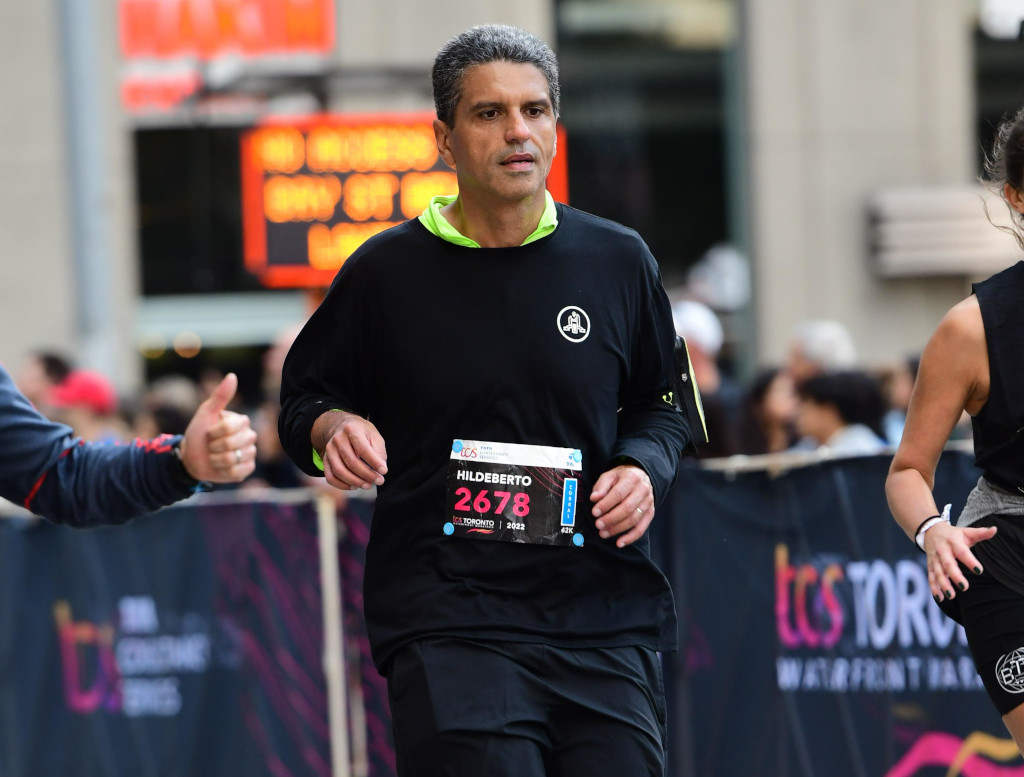
It was like forgetting everything I knew about running. In other words, a failure. I was in my best running shape and form, with no injures, all intervals and long runs done, and I didn’t even get a personal best. What happened?
After 3 years of good service, my old Garmin watch broke. These days, a runner without a tracking watch is just a wild beast, so I had to get a new one. The new model came with a coaching feature. The watch is capable of guiding and monitoring my workouts, not like a real coach but quite close. I joined a half-marathon program by Jeff Galloway and defined as goal a new personal best time for that distance. My actual distance is the marathon, but that half was what was available for free. I followed the program and by 3/4 of it, I overachieved my goal by 5 minutes! I’m not fully endorsing the program, since I practiced more than it required, but it helped to develop other running techniques and organize my intervals.
My new half-marathon personal best was less harder than I expected and it gave me too much confidence to risk a faster marathon. Confidence is good, but it might be harmful in distances like the marathon or longer. Only experience and intensive preparation can bring genuine confidence. I had that for a half and I thought I had that for a marathon too, but it pushed me to make a few mistakes that I already knew how to prevent:
-
Started too fast: we always are full of energy at the beginning and excited by the crowd, but my confidence made me forget that I may not have enough fuel to spear in the final hour. Also, my smart watch tried to alert me, showing that I haven’t slept enough lately. Despite everything, I kept a pace 10 seconds faster than my goal for 33km. That’s too fast and walking at the end was inevitable. What I’m supposed to do instead was to start slow and gradually increase my pace to reach the average goal. This strategy can vary according to the elevation, where I can go faster in downhills and slower in uphills.
-
Put on too many clothes in a cold day, but I forgot to get rid of excesses after the start. I ended up sweating too much, losing precious minerals like sodium and potassium, unable to refuel in the same rate along the race. That situation made my heart rate jump even when moving slowly. It’s a clear sign of fatigue caused by dehydration. There are guidelines about how to properly dress and gear for running in different weather conditions. In this occasion, I just had to protect my extremities, like my head and hands, and resist the initial cold for a few minutes, since the body warms up comfortably in the first 2km.
-
Didn’t ingest enough sodium prior to the race: I thought I learned how to properly hydrate in my long runs, but training for me was always slower than racing. I thought sports drinks and gels would help me, but they messed with my stomach. No more gels from now on. By ingesting more sodium, we retain more water within our body for longer, but for me, it works better to consume it before than during the race. A good tip is to eat sushi with generous soy sauce seasoning the evening before.
-
Intentionally matching or passing other runners is a classical mistake. Each runner has an individual strategy that might not match mine. Slower runners may be saving energy for later. Faster runners might be better prepared or make the same mistake. By passing them, I was burning energy too fast. In some races, they mix different distances, which was the case of this event, so many fast runners might be targeting a shorter distance. Especially in large events, runners start at very different times, making other runners the worse reference points. I actually have to stick to my pacing strategy and forget about others, passing them naturally, not intentionally. In case I really want to chase someone, I can follow close behind until I pass them naturally or when I’m confident that I can sustain a faster pace until the end of the race.
I was exhausted at 33km to the point I had to walk. Minutes later, the 4:00h pacer passed with a bunch of runners surrounding him. Many of those that I have intentionally passed were naturally passing me. My mind was full of negative thoughts, frustrated with the situation I was in, with still 9km to go. Then I remembered Jeff Galloway’s repeats, where I had to run 800 meters and walk 3 minutes. I recall those workouts added up to 8km to my mileage, so I did it, which helped me to control my heart rate which was going up too fast. I felt I could faint if I forced a continuous run until the finish line. The funny fact was that, in the last 2km there were simply too many people cheering, diverting my mind from the pain, and suddenly I was running like nothing happened. How? Did my mind play a trick on me?
In his book “Endure”, Alex Hutchinson reports that we get progressively more fatigued throughout a run, but when the end is in sight, we speed up. The brain probably holds us back during long efforts and then releases the final reserves when we are nearly finished and the danger is past. It matches my experience because I was afraid of fainting, then the crowd at the end distracted me and all I wanted to do was to finish it.
I didn’t get a personal best, but I was 1 minute from it. I believe Jeff’s intervals helped me to face the remaining distance. My initial goal was finishing under 4 hours and I was on track until the 33km, which is my longest stretch running at 5:30/km pace. At least my finish time is my best time after the pandemic, also above average overall, in my gender and age categories. Best of all: I felt very minimal muscular pain the day after like I could go for a run without issues.
Number: 6
Time: 04:08:42
Best Previous Time at this Race: 04:23:24
Best Marathon Time to Date: 04:07:11
Elevation: 160 m
